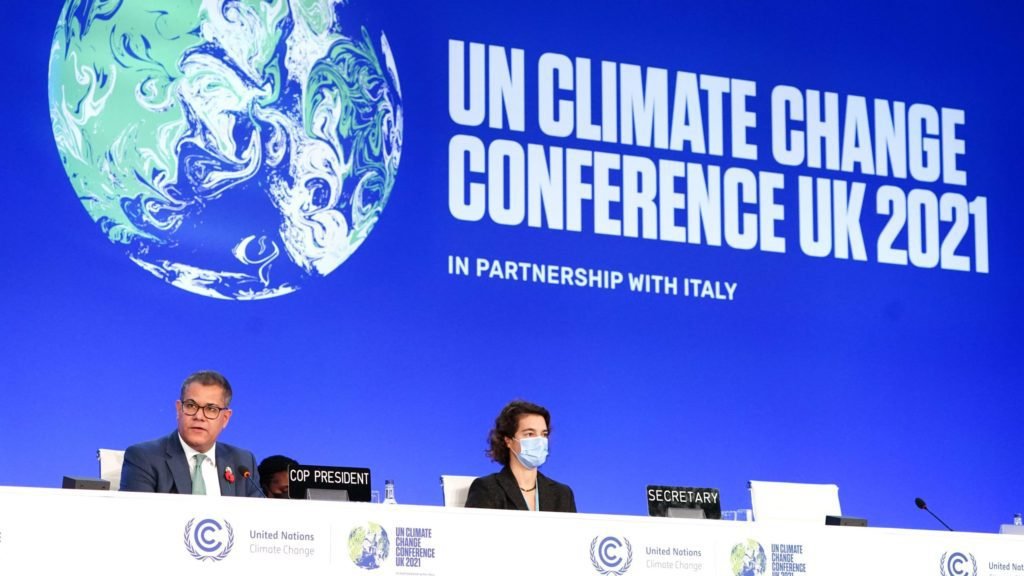According to climate scientists, the West did not play fair by chiding China and India for changing the wording of a coal deal at COP26 in Glasgow, noting that many developing countries still don’t have enough energy supply. To solve the divergence, wealthy countries must help finance the energy transition in developing nations.
Western media heaped criticism on China and India for weakening their coal pledge. In the last-minute change, the coal commitment was changed from “phase out” to “phase down” at COP26.
“China and India are going to have to explain themselves to the most climate vulnerable countries in the world,” UK lawmaker Alok Sharma, who led the COP26 negotiations, told the BBC’s Andrew Marr on Sunday.
In response, Zhao Lijian, spokesperson of China’s Ministry of Foreign Affairs, at a Monday briefing talked about China’s policies on curbing coal consumption, and said phasing down coal is a gradual process, during which developing countries’ need for sufficient energy supply should be considered.
“We encourage developed nations to stop using coal first, and remember their promise to provide sufficient financial and technological support to developing countries in energy transition,” Zhao said.
Developed countries should understand developing nations, who are the biggest victims of climate change, Lin Boqiang, director of the China Center for Energy Economics Research at Xiamen University, told the Global Times.
He said that it is impossible for China and India, the world’s biggest developing countries, who are also developing their economies and encountering disasters brought by climate change, to phase out coal in the near future.
China cut its coal use to 56.8 percent at the end of 2020, while coal accounts for over 70 percent of India’s electrical output.
“Developing countries must have the opportunity to improve the lives of their people. This is where the ‘stock’ of greenhouse gas emissions matters. Developed countries have played the biggest role in causing climate change, and to let the rest of the world develop they have to acknowledge this,” Kishore Mahbubani, distinguished fellow at the Asia Research Institute of the National University of Singapore, and a veteran diplomat, told the Global Times in an exclusive interview.
“It is simply unfair for those developed countries, which have been relying on coal to fuel its economic development unrestrained for centuries, to ask developing countries, who just started an economic take off, to abandon coal completely,” said Lin.
The expert said that the only way to solve this divergence is for rich countries to finance the energy transition of developing states.
Yet even days before the COP26 convened, a report pointed out that developed countries are still lagging behind in meeting the $100 billion climate fund pledge, a key part of the 2015 Paris Agreement.
Developed countries could have taken a big step toward this by fulfilling their pledge to provide $100 billion a year in climate finance to developing countries. Sadly, they have not done so, said Mahbubani, noting that “by trying to shift the onus for climate on developing countries and not doing more to help them, they have neglected the principle of common but differentiated responsibilities.”
Climate scientists said that China and India share a similar stance and requests on climate change negotiations.
During the COP26, most of the developing nations sought at least $1.3 trillion per year from wealthy countries in climate financing starting 2030.
Despite border disputes, China and India have been shepherding developing countries on climate issues, making sure developing countries stick to their own nationally determined contributions on climate, instead of being coerced by rich countries, Yang Fuqiang, a research fellow at Peking University’s Research Institute for Energy, told the Global Times.
(Except for the headline, this story has not been edited by The Finance World staff and is published from a syndicated feed.)

